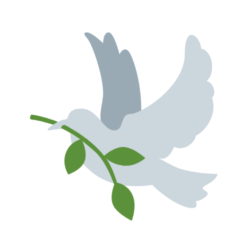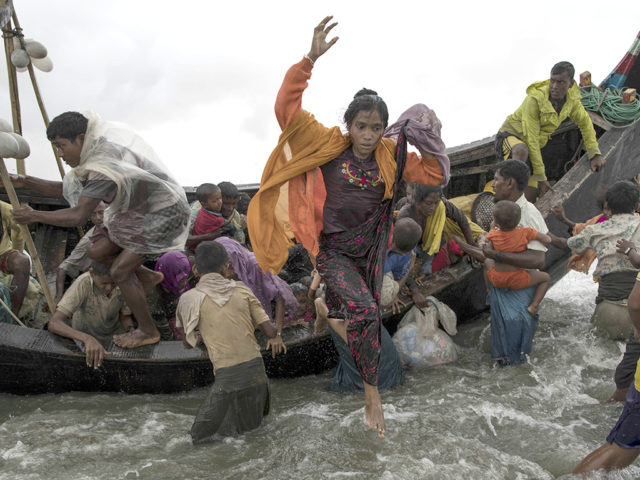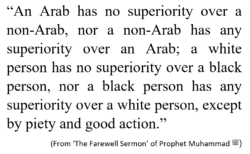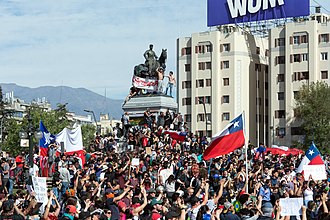My Human Rights Round Up

by Azhar Vickland
This year has been another year where we have seen human rights abuses and achievements both unfolding, while we continue our fight for the best of humanity. Having spent an entire year of my life at university, I have been given the privilege of trying on different political lenses to view human rights from differing perspectives. This post aims to look at human rights issues, mostly reflecting the topics throughout the past years and the increased attention this year. Firstly, I will briefly list some of the human rights issues that I have been paying attention to. Next, I will use this platform to speak up about racism and Islamophobia. Lastly, I will express my gratitude to the various stakeholders who have kept this initiative going through 2019.
We are seeing a surge of nationalist and populist governments harnessing huge amounts of power at the expense of the democracy, abusing the very institutions that have put them into power. Earlier this year, India voted the Bharatiya Janata Party (BJP) back into power. The party has continually pursued a Hindu nationalist agenda which has even attracted the support of the far-right in the West. BJP’s victory this year has facilitated the revoking of Article 370 of the Indian constitution and the introduction of the Citizenship Amendment Bill (CAB). These major moves have threatened the secular nature of Indian politics and has raised serious concerns of human rights violations perpetrated against Kashmiris, Indian Muslims and other minority groups in India.
While the Indian government is being questioned about its status as a secular government, their neighbour has used secularism to justify its human rights violations. The Chinese government’s systematic oppression of the Uighur Muslims is raising alarms, exposing China's façade of economic growth and soft power projection. There have been reports of Uighur Muslims being sent to interment camps to be “re-educated” and “treated” due their possible exposure of ‘Radical’ Islam. Furthermore, there are reports of mosques being razed to the ground and that of Uighur women facing sexual and psychological abuse from the state.
Other than the human rights violations in the northwest, the southeast of China has also received abuse from the government in Beijing. The Hong Kong government was recently under fire from its citizens due to the introduction of the controversial extradition bill. The people of Hong Kong have tirelessly protested the undermining of their democracy and were determined not to yield to the government in Beijing. The introduction of the bill would have facilitated the Chinese government’s arrests of the voices of political dissent in Hong Kong.
The silencing of political opposition has been always been a tool used by oppressive regimes to maintain power and rule over its people. This can also be seen in arrests of the two Reuters journalists in Myanmar in 2017. They were both released under a presidential amnesty in May this year. The Burmese government and military has been accused of genocide against the Rohingya in the Rakhine state. The Rohingya are an ethnic minority in Myanmar and have been fighting to be recognised as an ethnic community in Myanmar. The de facto leader of Myanmar, Ann San Suu Kyi, has defended her actions in the International Court of Justice but a final verdict has yet to be reached.

Rohingya refugees fleeing to Bangladesh (photo: Jordi Bernabeu Farrús)
Discussions about ethnic minorities fighting for their rights in their ancestral land leads on to my next area of focus. This topic has been surrounded by great controversy and intervention by the West, the Israeli – Palestinian conflict.
Palestinians have faced abhorrent injustices such as the blockade of Gaza (referred to as an ‘open-air prison’), the illegal expansion of territory in the West Bank, and disproportionate use of military power against Palestinian civilians. We have to show continuous support to peaceful movements calling for the rights of the Palestinians to be respected.
My discussion of human rights has so far been focused on issues in Asian and Middle-Eastern states, shifting my focus back to domestic human rights issues is inherently a part of my degree (Social Policy).
The UK government is responsible for the tone it sets regarding national policies. This steers towards the topic racism and Islamophobia, where we are seeing an increasing problem with politicians and the media deploying racist sentiments for personal gain.

Political factions looking for political gain have used public discourse to cause division among and between communities for their own political gain. Referring to Article 1 of the UDHR (1948), racism is a human rights issue which the government has to tackle and that which we have to fight against. We could first acknowledge that we have differences such as our languages, ethnicities, faiths, beliefs and genders. However, seeing past these differences, we should realise that our diversity is a strength within society. This forms our resistance against political powers that are looking to divide us.
Moreover, in the current political climate, an emphasis has to be placed on a person’s faith when this topic is discussed. The injustices in India, China and Myanmar, all of which I have listed above, take root from Islamophobic sentiment. This concerns me when members of the UK government are openly Islamophobic and little is being done within the government to tackle this issue. As a Muslim I am obliged to oppose institutional Islamophobia and Islamophobic hate crime.
Therefore, I appeal to everyone to join the fight against racial and religious discrimination to protect our human rights. Some of the ways we can challenge this discrimination is by speaking out against it, educating others about our diversity and showing kindness towards people regardless of our differences. One such example is Leeds alumna Baroness Warsi who is challenging Islamophobia in British politics. Another such example is Leeds alumna Imam Qari Asim MBE who has been looking into the working definition of Islamophobia. The politics of the coming decade will be shaped by us, leaving us to choose between division and hatred or unity and compassion.
There have been many other human rights issues I have not discussed in this post. I hope to bring to awareness the human rights violations in Latin America (where there have been protests about socio-economic conditions), North Africa and the Middle East (both destabilised by foreign intervention which has led to civil conflict), and Southeast Asia (from the discrimination faced by the Tamil diaspora to the War on Drugs in Philippines).

2019 Chilean protests
Entering a new decade, the Human Rights Journal Blog will continue to support the voices of ethnic minorities, feminists and activists fighting injustices in society.
Finally, I want to express my sincere gratitude to the various stakeholders who have kept this initiative going through 2019. The previous HRJ team, my current team, Tess, study abroad columnists, general contributors and readers of the blog.
Online Editor: Azhar Vickland, 2nd year BA Politics and Social Policy Undergraduate.

